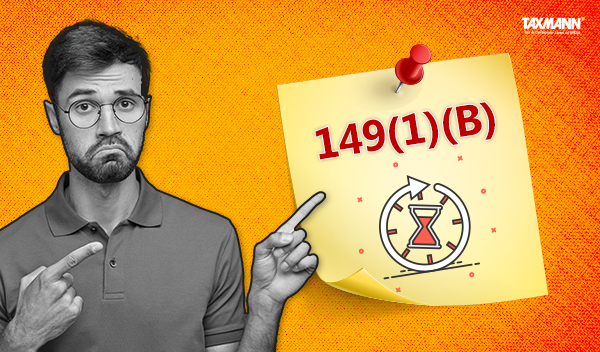Time-limit U/s 149(1)(B) is for Issuing Notice After Recording Reasons & Not for Furnishing Copy of Reasons to Assessee
- Blog|News|Income Tax|
- 2 Min Read
- By Taxmann
- |
- Last Updated on 12 April, 2024

Case Details: Bangalore Turf Club Ltd. v. Union of India - [2024] 161 taxmann.com 353 (Karnataka)
Judiciary and Counsel Details
- B.M. Shyam Prasad, J.
- S. Naganand, Sr. Counsel & Smt. Sumana Naganand, Adv. for the Petitioner.
- Raviraj Y.V., Adv. for the Respondent.
Facts of the Case
The Bangalore Turf Club Limited (the assessee), a recognized Turf Authority, was engaged in organizing thoroughbred horse racing. The assessee was assessed for the relevant assessment year under section 143(3).
During the assessment proceedings, payments made to horse owners were disallowed under section 40(a)(ia) on the ground that TDS under section 194B/194BB was not made. Aggrieved by the order, the assessee filed an appeal before the Tribunal. The Tribunal granted a stay of the assessment order.
Subsequently, the Assessing Officer (AO) issued a notice under section 148 to initiate reassessment proceedings. The assessee contended that the initiation of proceedings under section 147 was barred by limitation as the copy of the reasons recorded was issued after the expiry of six years from the end of the relevant assessment year.
The matter reached the Karnataka High Court.
High Court Held
The High Court held that the time limit prescribed under section 149(1)(b) is for issuing a notice under section 148 after recording reasons and not for furnishing a copy of the reasons to the assessee.
The conditions for the exercise of jurisdiction to initiate reassessment must be complied with within the time limit for issuing the notice. If the power vested to exercise such jurisdiction is shackled, it cannot be reasonably opined that reasons for reassessment had to be furnished within the period of six years.
In the instant case, reasons were recorded for re-assessment before issuance of notice, and the assessee had disclosed primary facts. Thus, there could not be any allegation of failure to truly and fully disclose material facts.
Disclaimer: The content/information published on the website is only for general information of the user and shall not be construed as legal advice. While the Taxmann has exercised reasonable efforts to ensure the veracity of information/content published, Taxmann shall be under no liability in any manner whatsoever for incorrect information, if any.



 CA | CS | CMA
CA | CS | CMA
